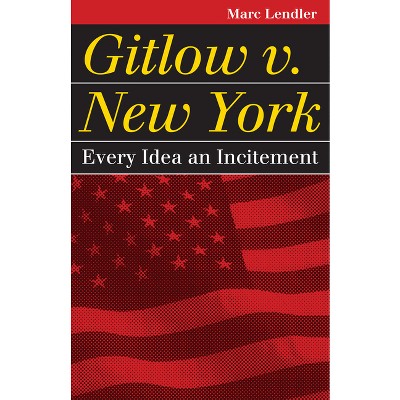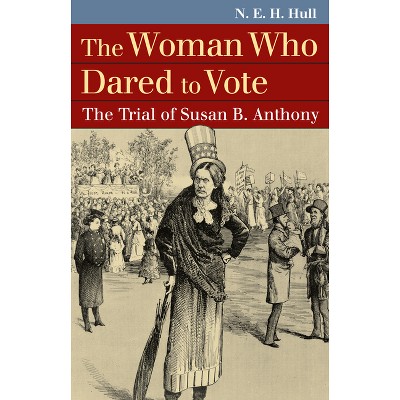Sponsored

Women in the Barracks - by Philippa Strum (Paperback)
In Stock
Sponsored
About this item
Highlights
- In June 2001, there was a decidedly new look to the graduating class at Virginia Military Institute.
- Author(s): Philippa Strum
- 428 Pages
- Freedom + Security / Law Enforcement, Legal History
Description
Book Synopsis
In June 2001, there was a decidedly new look to the graduating class at Virginia Military Institute. For the first time ever, the line of graduates who received their degrees at the "West Point of the South" included women who had spent four years at VMI. For 150 years, VMI had operated as a revered, state-funded institution--an amalgam of Southern history, military tradition, and male bonding rituals--and throughout that long history, no one had ever questioned the fact that only males were admitted. Then in 1989 a female applicant complained of discrimination to the Justice Department, which brought suit the following year to integrate women into VMI. In a book that poses serious questions about equal rights in America, Philippa Strum traces the origins of this landmark case back to VMI's founding, its evolution over fifteen decades, and through competing notions about women's proper place. Unlike most works on women in military institutions, this one also provides a complete legal history--from the initial complaint to final resolution in United States v. Virginia--and shows how the Supreme Court's ruling against VMI reflected changing societal ideas about gender roles. At the heart of the VMI case was the "rat line" a ritualized form of hazing geared toward instilling male solidarity. VMI claimed that its system of toughening individuals for leadership was even more stringent than military service and that the system would be destroyed if the Institute were forced to accommodate women. Strum interviewed lawyers from Justice and VMI, heads of concerned women's groups, and VMI administrators, faculty, and cadets to reconstruct the arguments in this important case. She was granted interviews with both Justice Ginsburg, author of the majority opinion, and Justice Scalia, the lone dissenter on the bench, and meticulously analyzes both viewpoints. She shows how Ginsburg's opinion not only articulated a new constitutional standard for institutions accused of gender discrimination but also represented the culmination of gender equality litigation in the twentieth century. Women in the Barracks is a case study that combines both legal and cultural history, reviewing the long history of male elitism in the military as it explores how new ideas about gender equality have developed in the United States. It is an engrossing story of change versus tradition, clear and accessible for general readers yet highly instructive and valuable for students and scholars. Now as questions continue to loom concerning the role of state funding for single-sex education, Strum's book squarely addresses competing notions of women's place and capabilities in American society.Review Quotes
An amazingly complete and richly detailed history of the Virginia Military Institute (VMI), of both the behind-the-scenes and the easily visible legal maneuvers that led to the Supreme Court's decision in United States v. Virginia, and of the subsequent integration of VMI."--Law and Politics Book Review
"Even-handed, thorough, and thought provoking . . . . A 'must' book for students of legal, gender, and military history."--Journal of Southern History
"A compelling, beautifully written, and sweeping legal history, replete with wonderful insights, that reminds readers of the importance of the federal judiciary as arbiters and mediators of the meanings of the U.S. Constitution, especially during eras of cultural change. . . . A very significant contribution."--Journal of American History
"An epic story about the legal battle for gender equality in the United States. . . . A modern version of Anthony Lewis's Gideon's Trumpet and an ideal companion to collections on the Supreme Court, the law, feminism, and women's rights. Highly recommended at all levels."--Choice
"A fascinating book."--Virginia Quarterly Review
"Strum expertly examines the legal strategies and theory of both sides in U.S. v. Virginia."--History of Education Quarterly
"Fascinating and beautifully written, Women in the Barracks is far more than a case study of a lawsuit. It offers unique insights into the evolution of gender roles in modern and postmodern America."--Linda Grant De Pauw, author of Battle Cries and Lullabies: Women in War from Prehistory to the Present
"An 'inside story' full of rich detail that illuminates both VMI's institutional history and one important strand in the modern women's movement."--Kenneth L. Karst, author of Law's Promise, Law's Expression: Visions of Power in the Politics of Race, Gender, and Religion
"A generous-spirited, thoughtful, and thorough book that helps us think about the meanings of military traditions and the military choices we make in our own time."--Linda K. Kerber, author of No Constitutional Right to Be Ladies: Women and the Obligations of Citizenship
Shipping details
Return details
Trending Non-Fiction











